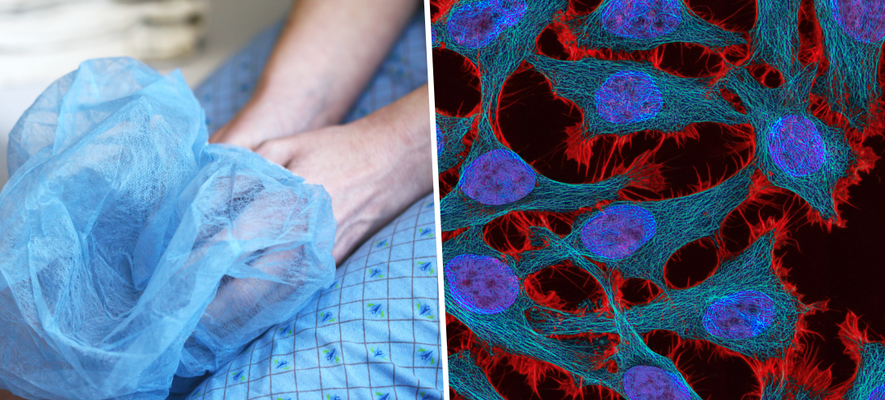A study published by The Lancet on August 16, 2023 reveals that a third of men over the age of 15 are affected by one of the 200 existing papillomaviruses. Among them, 7 can cause cancer and thousands of cases are recorded each year.
It is one of the most widespread sexually transmitted infections and contrary to certain beliefs, its sometimes serious consequences can affect men.
HPV (Human papillomavirus), is for the most part asymptomatic or is manifested by more minor signs (skin lesions in particular). Sometimes this leads to cancer, for two strains in particular, noted the IARC (International Center for the Fight against Cancer) in 2018, a study cited by the Leon Berard Cancer Center.
Cancer risks
According to this international study, research on HPV16 contains sufficient evidence to associate it with cervical cancers. uterus, vulva, vagina, penis, oral cavity, oropharynx and tonsils. For strain 18, it is exclusively cervical cancer that can be triggered.
And if cancer of the cervix is the most cited as a consequence, it is simply the most common in women with 3,000 new cases per year, before anal cancer with 1,100 cases.
Read also :
UNDERSTAND EVERYTHING. Papillomavirus: generalization of the vaccine, age, sex, cancer, Raoult… what you need to know
In men, mouth and throat cancers come first with 1,300 cases per year, followed by cancers of the anus with 360 cases and of the penis with 90 cases. Less affected (1,700 cases against 4,600 in women), men can also suffer from particularly deleterious consequences on health, even fatal in some cases.
This virus is responsible for 100% of cancers of the uterus, 27% of the penis, 90% of the anus, 23% of the vagina and 4 to 34% of mouth and throat cancers.
Every day, approximately 17 new cases cancers linked to the papillomavirus are diagnosed in France, i.e. 6,300 new pathologies per year, recalls the site Papillomavirus.
Vaccination
The vaccination coverage rate is currently 37% among women and 9% among men, even though the control strategy implemented between 2021 and 2030 targets 80% of vaccinated people.
Read also :
Calendar, methods, effectiveness… all about the vaccination against the papillomavirus which arrives in colleges
In one-third of cases for men and two-thirds for women, HPV infections can progress to cancer within 10 to 30 years of contamination.
The injection is recommended for adolescents between 11 and 14 years old but can be done up to 19 years old, or even 26 years old for men who have sex with other men. Emmanuel Macron announced in March that the vaccination campaign would be “generalized” in colleges for fifth graders in September.

